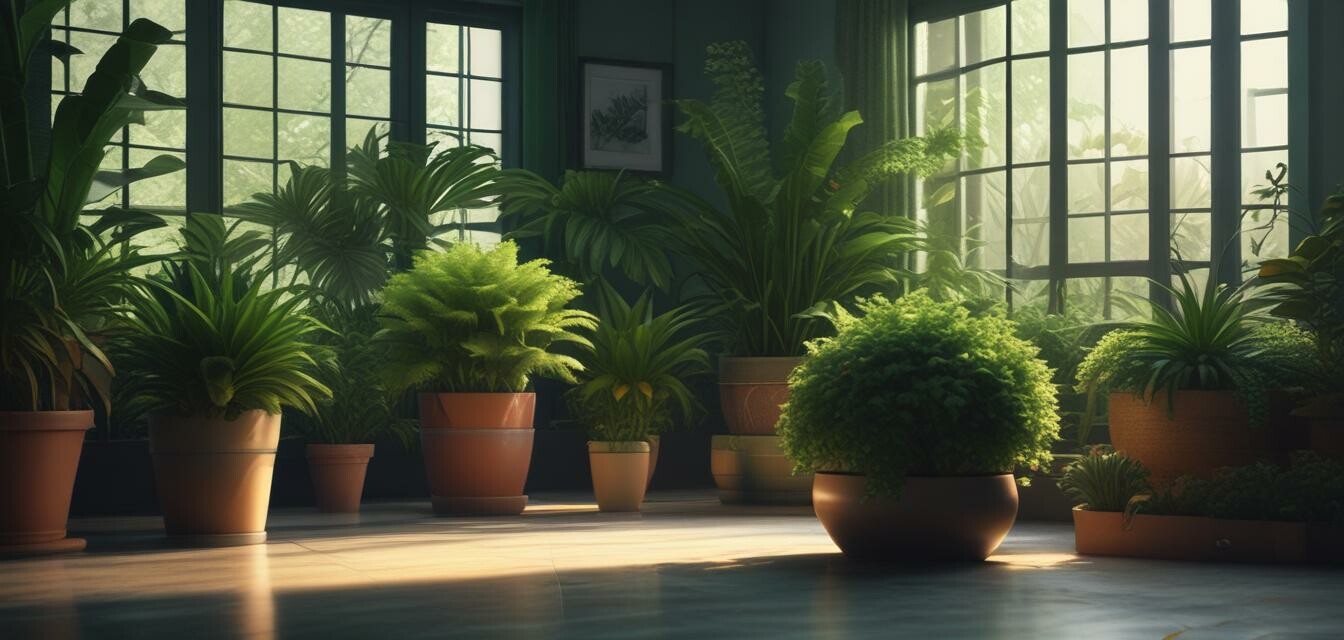
Best Practices for Caring for Houseplants in Containers
Key Takeaways
- Choosing the right potting mix and container can significantly impact plant health.
- Proper watering techniques prevent over and under-watering.
- Light requirements vary between species; always tailor light exposure accordingly.
- Regular fertilization is crucial for soil nutrient replenishment.
- Monitoring for pests and diseases will help maintain plant health.
Caring for houseplants in containers can be a rewarding experience, but it also comes with its unique set of challenges. Understanding the basics of plant care—including watering, light exposure, and fertilization—will ensure your plants thrive in enclosed spaces, such as apartments and balconies. This guide will provide you with practical advice to help your indoor garden flourish.
Choosing the Right Container
The container you choose for your houseplants is crucial for their success. Here are a few factors to consider:
- Size: Containers should be large enough to accommodate the plant's root system.
- Material: Options include plastic, clay, ceramic, and metal. Each has unique properties affecting moisture retention.
- Drainage: Always select pots with drainage holes to prevent water from sitting in the base.
Best Potting Mix for Houseplants
A quality potting mix is essential. A mix tailored for indoor plants, such as Houseplant Focus Repotting Mix, will give your plants the best chance. Consider these characteristics when selecting a potting mix:
| Feature | Description |
|---|---|
| Moisture retention | Good mixes maintain moisture without becoming waterlogged. |
| Nutrient content | Rich in essential nutrients to support growth. |
| Texture | A mix should have a balance of fine and coarse materials for proper aeration. |
Watering Techniques
Proper watering is fundamental for houseplant health. Here are some best practices:
- Check the soil moisture before watering. Stick your finger about an inch into the soil; if it feels dry, it's time to water.
- Water thoroughly, allowing excess to drain out of the bottom. This promotes healthy root growth.
- Avoid letting plants sit in water, as this can lead to root rot.
Light Requirements
Light exposure varies for different plant species. For best results:
- Identify your plant's light needs: full sun, partial shade, or low light.
- Rotate your plants every month to ensure even light distribution.
- Consider using grow lights for low-light areas, especially during winter months.
Fertilization Practices
Fertilization is an important aspect of indoor plant care. Here’s how to do it effectively:
- Use a balanced, slow-release fertilizer suitable for houseplants.
- Follow a fertilization schedule; typically once every 4-6 weeks during the growing season is recommended.
- Reduce fertilization in fall and winter when many plants go dormant.
Pest and Disease Control
Keeping an eye out for pests and diseases is crucial in maintaining healthy houseplants:
- Inspect plants regularly for signs of infestation—look for discolored leaves, webbing, or tiny insects.
- Use neem oil or insecticidal soap to treat common pests.
- Properly ventilate your indoor gardening space to prevent mold and mildew.
Enhancing Decor with Plants
In addition to caring for plants, consider how they fit into your space:
- Group plants together for a lush, vibrant look.
- Consider different heights and textures for an appealing display.
- Use decorative pots that complement your indoor style.
Conclusion
With a little attention and care, your container plants can flourish and bring life into your home. For added enchantment, consider using decorative lights, such as DooYard Solar Garden Lights. Not only do they enhance your indoor garden ambiance, but they also make a stunning addition to your balcony or patio.
Additional Resources
For more insights into container gardening, explore our informative articles: